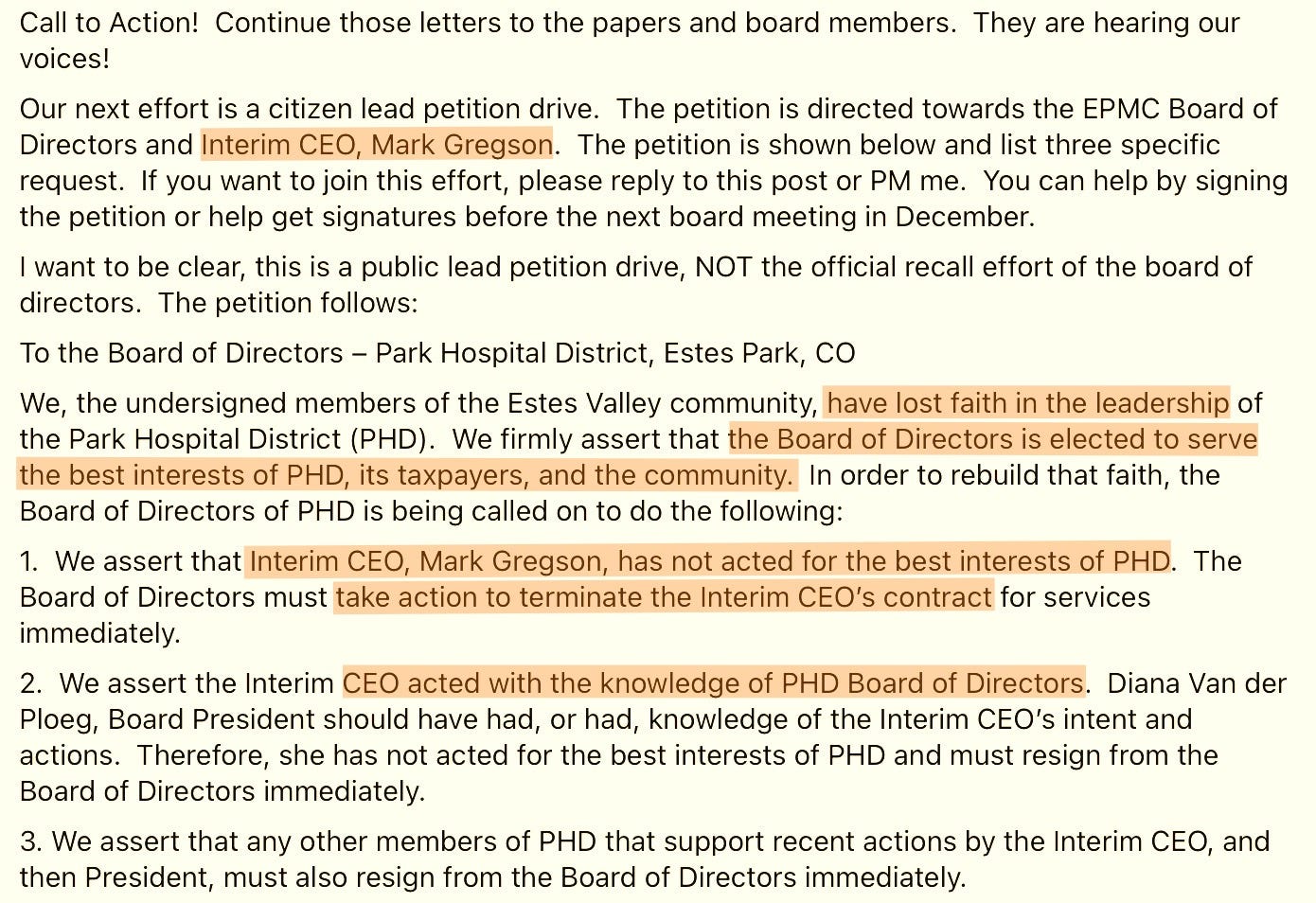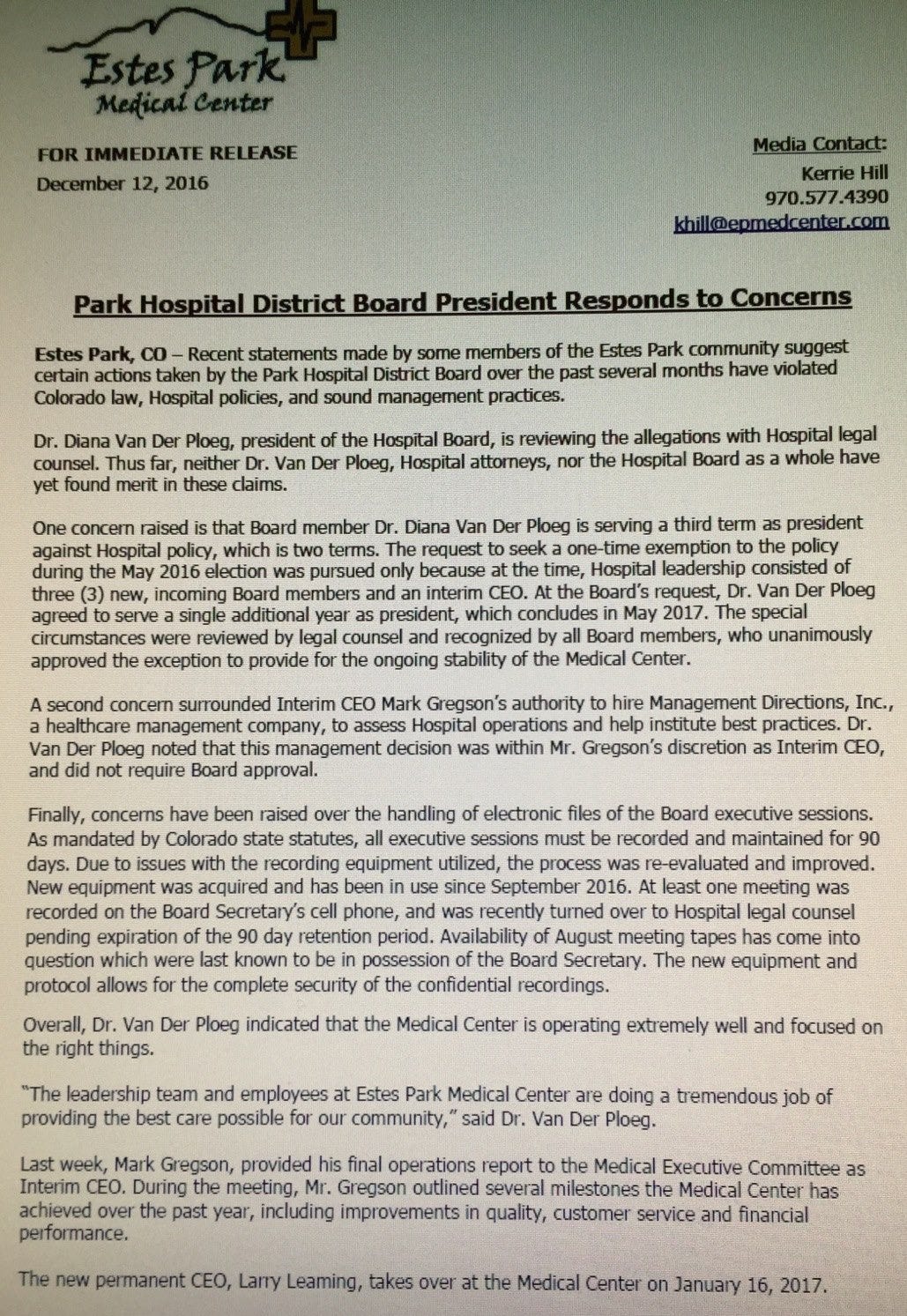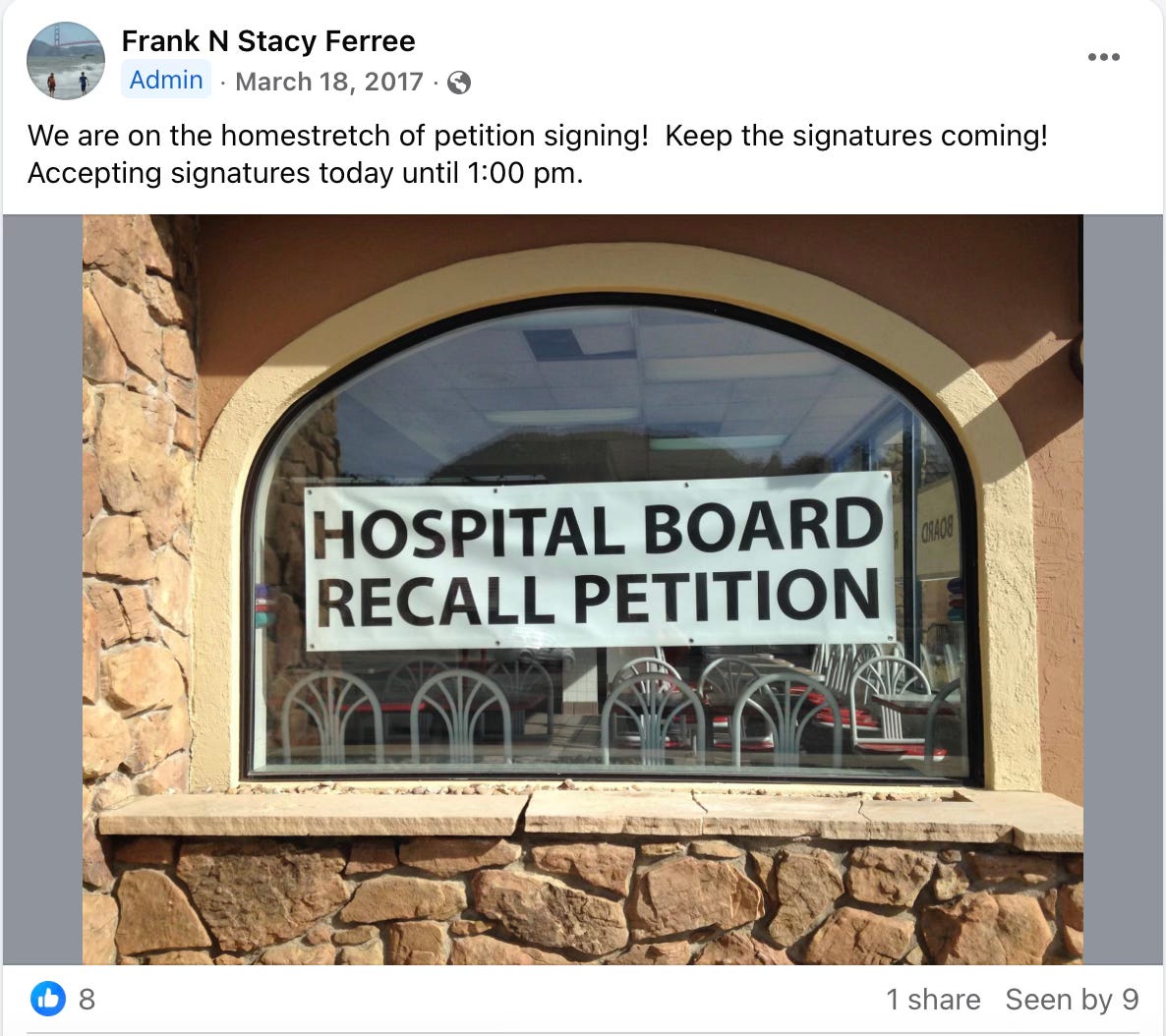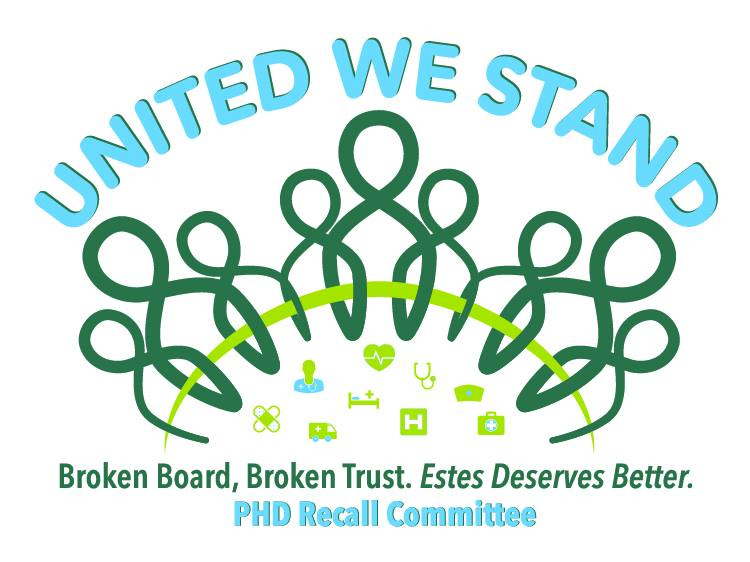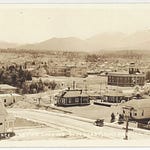When it comes to Olympic Medical Center (OMC), history isn’t just a backdrop—it’s a warning sign. As the publicly owned hospital faces financial collapse, interim CEO Mark Gregson brings a Colorado track record that sparked petitions, recalls, and community outrage. In 2016, as interim CEO of Estes Park Medical Center (EPMC), Gregson faced organized resistance after hospital leadership was accused of mismanagement, bullying, and questionable decisions. The flashpoint was his unilateral hiring of a management consulting firm without board approval—an act that fueled mistrust and deepened the crisis.

In November 2016, Estes Park residents rallied around a petition calling on the Park Hospital District (PHD) Board to take immediate action. Their demands were blunt: fire interim CEO Mark Gregson and call for the resignation of board president Diana Van Der Ploeg.
“We assert that Interim CEO, Mark Gregson, has not acted for the best interests of PHD. The Board of Directors must take action to terminate the Interim CEO’s contract for services immediately.” — Citizen petition, Estes Park, CO
The community soon escalated. By March 2017, multiple board members faced recall petitions, and by May, the entire hospital board resigned under pressure. Gregson himself stepped down in January 2017, replaced by a permanent CEO.
At the core of the uproar were familiar complaints: a culture of bullying employees, overreach by leadership, and decisions made without proper oversight. Supporters of the recall said bluntly: “We need hospital district board members who have a proven history of integrity, experience with public service… and the strength to see that the medical center is run for the greater good of the community.”
Fast forward to Clallam County
Today, at OMC, the concerns echo. Gregson was brought in as interim CEO with little visible vetting, despite objections from employees and medical staff. According to OMC insiders:
Gregson is reportedly on-site only 3.5 days per week, leaving Thursday afternoons for his home in Arizona and returning Sunday nights.
In addition to his $50,000-a-month contract, Gregson is reimbursed for biweekly trips to his home in Arizona. Gregson pays for half the trips himself while billing OMC for the others.
Déjà vu all over again?
At OMC, Gregson now faces a situation strikingly similar to the one he confronted nearly a decade ago. Back in Estes Park, citizens gathered at their public library to form a recall committee, frustrated that decisions affecting the community were happening without transparency or accountability. Their hospital, like ours, was publicly owned. The people demanded oversight.
Why this matters now
OMC is not a private business—it’s a public hospital district. Every dollar it spends comes from us, the taxpayers and patients who rely on it. And with OMC facing dire financial trouble, we can’t afford to sleepwalk through history.
Estes Park residents didn’t wait until it was too late. They looked at the leadership, drew the line, and demanded accountability from both their CEO and their elected board.
The lesson is clear: understanding yesterday’s battles is essential to fighting today’s. OMC belongs to us. The question is whether we’ll learn from history—or repeat it.
Could OMC Be Next?
If you think a hospital closure “could never happen here,” think again. Earlier this year, a mother in Pennsylvania pulled up to her local ER with a baby who wasn’t breathing — only to find the hospital permanently closed. Why? Its private equity owners had siphoned millions to investors instead of investing in care. Patients and workers are paying the price.
The short documentary above includes testimony from doctors, nurses, lawmakers, and families:
“Not one child should ever die because those bastards closed our hospital.”
“Prospect never treated us like a hospital. They treated us like a business.”
“I hope for you that you never have a hospital close in your county… because these people deserve better.”
Sound familiar? The same financial playbook — private equity, short-term contracts, consultants, debt-loading, and quick exits — is being played out in communities across America. And now, it’s sitting in our own backyard at OMC.
The warning from Pennsylvania is clear: when hospitals are treated as investment vehicles, communities suffer. Patients die. Jobs disappear. And once a public hospital closes, getting it back is next to impossible.
As Olympic Medical Center faces its most precarious financial moment in history, we must ask: are our board members protecting the public interest, or repeating the same mistakes that left other communities without hospitals at all?
Because this isn’t just a hospital. It’s our hospital.
Tune in to Clallam County Watchdog on KSQM Radio today
Today (Friday) at 4 p.m., join Clallam County Watchdog on KSQM 91.5 FM for a refreshing break from heavy headlines. Instead of dissecting covered-up scandals or ethical conflicts, we’ll explore music’s role in this blogger’s life—hint: It’s not all Cher. Stream online here and support KSQM’s “music, not mayhem” vibe. It’s a chance to engage with the community’s watchdog in a lighter, relatable way.



